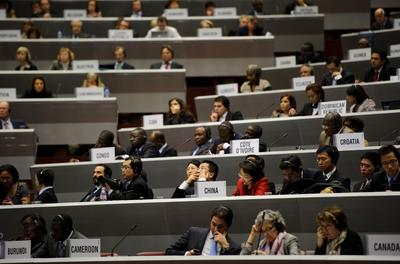The winners, meanwhile, including individual, government and industry consumers, have gains that are spread thinly between them.
The uncertainty associated with reform efforts frequently generates resistance — and rigorous debate over which reform path to chart only heightens this sense of uncertainty, creating yet more resistance. There is less research on the gains from trade liberalisation in services than there is in goods. As a result, the liberalisation of services has received little advocacy, only reinforcing the region’s sluggish efforts toward reform.
Unlike goods, trade liberalisation in services affects multiple sectors simultaneously, requiring the involvement of multiple government departments and ministries. Achieving effective domestic coordination is thus a practically complex exercise, beholden to public-service politics and the relative strength of domestic political patronage. These barriers to unilateralism complicate regional efforts to promote the integration of trade in services.
But regional integration — or ‘regionalism’ — has some of its own unique complications. Many barriers to trade in services are behind the border, so transparency is a key issue. Conventional trade negotiating strategies provide political cover for domestic interest groups opposed to reform, preaching that ‘foreigners want this, so it must be good for them and bad for us’.
Regionalism also lags significantly behind unilateral efforts, as evidenced by research showing the large gap between Doha Round offers and actual national policies. Previous reform efforts have been undertaken unilaterally, but significant barriers still remain. If actual policy is ahead of WTO commitments, then why are WTO members not willing to offer more, and more readily?
One attempt to explain this policy–commitment gap is that it is created by the ‘request–offer’ dynamic of the General Agreement on Trade in Services (GATS) negotiations. This framework encourages a tit-for-tat negotiating strategy, with parties reluctant to relinquish their ‘offer–policy’ gaps for fear of reducing their future leverage over negotiations. There is also considerable concern that multilateral commitments will deprive governments of regulatory freedom.
At the global level, Doha’s ‘nothing is agreed until everything is agreed’ formulation has failed. Within the realm of services, this is compounded by multiple factors. For example, GATS schedules are so technically complex as to be almost unintelligible, and the absence of a widely adopted measure of restrictiveness of trade in services makes the monitoring and evaluation of progress in liberalisation exceptionally difficult.
The Australian government is right in arguing that the services component of the Doha Round should be broken off into a separate negotiation. Australian Minister for Trade Craig Emerson concludes that ‘a pathway including plurilateral agreements under the auspices of the WTO is well worth pursuing’. The role of regionalism here should be used to consolidate regional positions and thus reduce the complexity in reaching a plurilateral agreement. As with goods, value chains in services criss-cross more intensely at the regional level, and so regionalism is also the most appropriate platform from which to undertake technical cooperation.
But a reliance on regionalism to drive plurilateral agreement on trade in services is not without its own dangers, as regionalism can take many different forms. For example, it can be interpreted as being supportive of regional trade agreements, diverting attention and talent away from the real game of plurilateralism. Another danger is that regionalism will not only consolidate negotiating positions within regions, but also harden them into blocs. This would limit the flexibility to manoeuvre in negotiations and thus reduce the chance that any agreement can be reached.
APEC is still the best-placed institution for leading regional efforts in liberalisation and integration of trade in services in the Asia Pacific. Freer trade, whether in goods or services, is unequivocally worth the effort. It provides manifest global economic benefits, especially in its contribution to poverty reduction. And access to higher-quality services — particularly in education, health care, communication and transport — offers significant improvements to the global human experience.
Another compelling reason for pursuing reform and liberalisation in services is to promote international security. There is now a level of economic integration between all the globally significant military powers that precludes war as a rational option, at least on economic grounds. It is here that there is a danger with the Trans-Pacific Partnership (TPP). While it would be hard to argue that the US has designed the TPP with the sole purpose of excluding China, it has been made in the spirit of economic containment and risks splitting the region into two blocs. The Australian government has already come out in support of the TPP, but other regional governments should not fall for the same mistake.
Michael Cornish is a lecturer at the School of Economics, University of Adelaide.
This is an edited extract from a speech to the Indonesian Ministry of Trade, 21 February 2012, available here.

